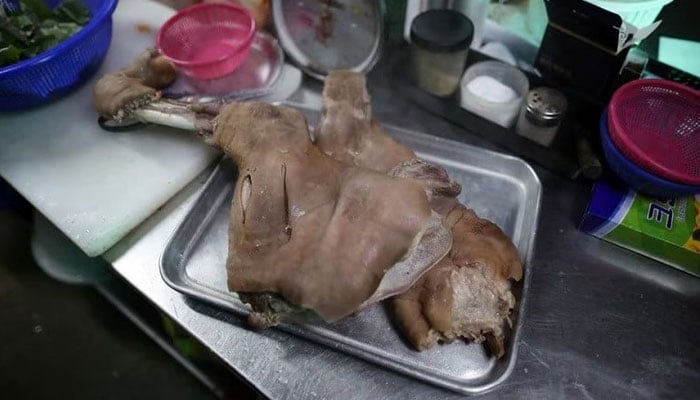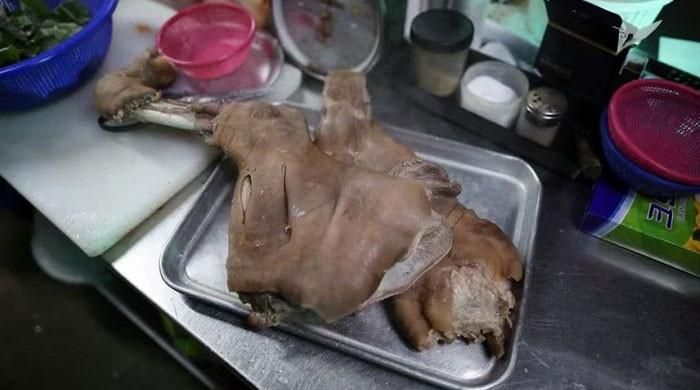Dog meat stew, known as “boshintang,” has been considered a delicacy among some older South Koreans.
South Korea passed a groundbreaking law banning the slaughter and sale of dogs for meat, marking a significant step toward ending the centuries-old tradition of consuming dog meat.
The legislation, which will come into effect in 2027, does not make the consumption of dog meat illegal, but focuses on criminalizing the dog meat trade.
Dog meat stew, known as “boshintang,” has been considered a delicacy among some older South Koreans, but its popularity has declined, especially among the younger generation. A Gallup poll revealed a sharp drop in dog meat consumption: Only 8% tried it in the past 12 months, compared to 27% in 2015.

Under the new law, those convicted of killing dogs could face up to three years in prison, while individuals guilty of raising dogs for meat or selling dog meat could serve a maximum sentence of two years. Farmers and restaurant owners are given a three-year grace period to transition to alternative sources of employment.
The move comes as social attitudes change, with more people seeing dogs as members of the family, leading to greater support for animal rights. The government, recognizing the declining popularity of dog meat, aims to support affected farmers, butchers and restaurant owners during the transition.

While some older people, like 86-year-old Kim Seon-ho, express disappointment and claim the tradition dates back to the Middle Ages, the generational divide is evident. President Yoon Suk Yeol and first lady Kim Keon Hee, known for their love of animals, have advocated ending the practice.
Animal rights groups, including the Humane Society of Korea, have praised the ban, marking a significant change after decades of failed attempts to address the problem.
According to Jung Ah Chae, executive director of the Humane Society in Korea, the ban reflects South Korea’s commitment to a more dog-friendly future.
However, some dog meat producers oppose the ban, suggesting that declining popularity among the younger population should be allowed to phase out the practice naturally.












